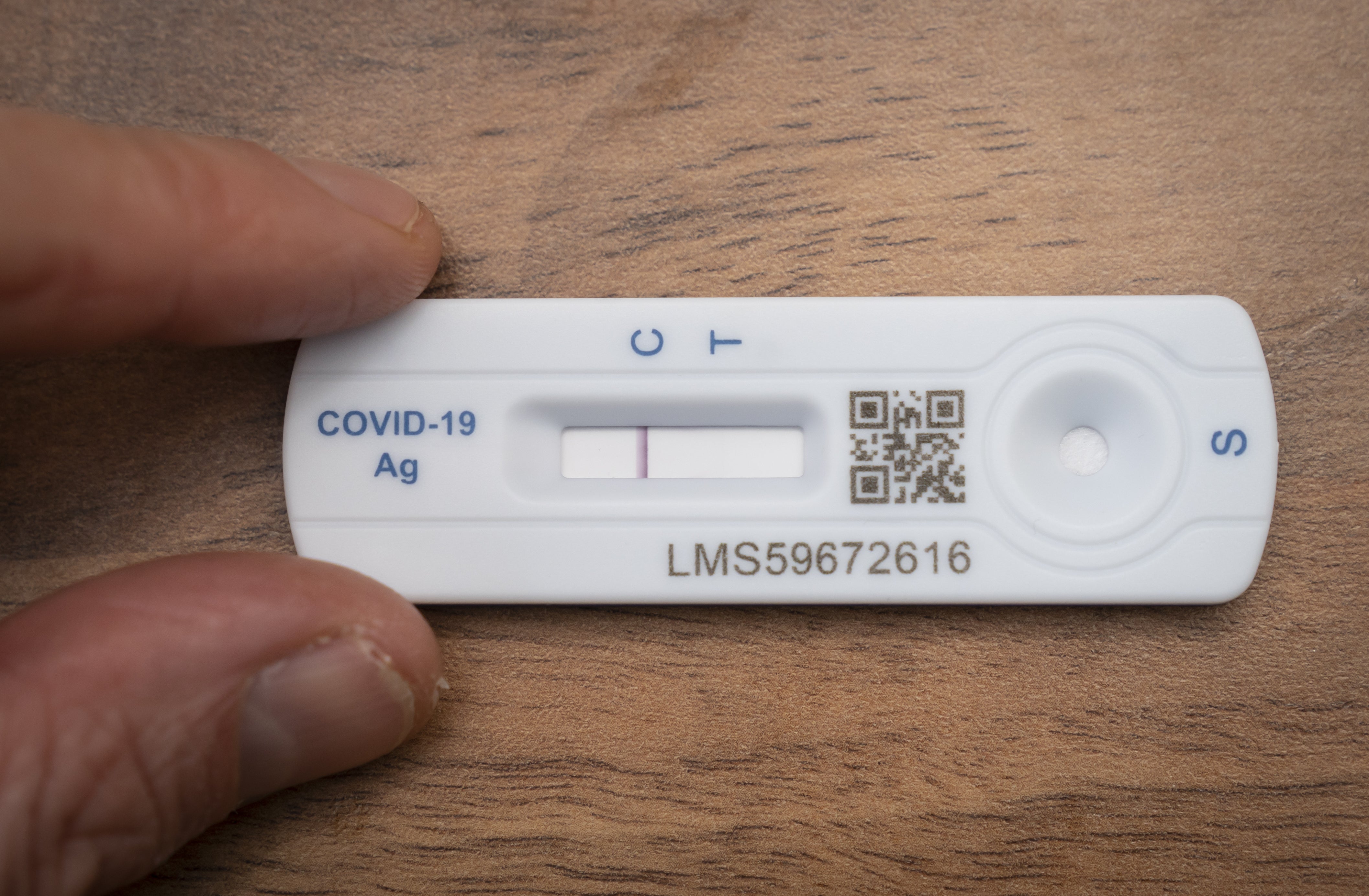Shorter isolation period comes into effect as minister offers hopeful outlook
People with the virus can leave quarantine after five full days, as long as they test negative on days five and day six.

Your support helps us to tell the story
From reproductive rights to climate change to Big Tech, The Independent is on the ground when the story is developing. Whether it's investigating the financials of Elon Musk's pro-Trump PAC or producing our latest documentary, 'The A Word', which shines a light on the American women fighting for reproductive rights, we know how important it is to parse out the facts from the messaging.
At such a critical moment in US history, we need reporters on the ground. Your donation allows us to keep sending journalists to speak to both sides of the story.
The Independent is trusted by Americans across the entire political spectrum. And unlike many other quality news outlets, we choose not to lock Americans out of our reporting and analysis with paywalls. We believe quality journalism should be available to everyone, paid for by those who can afford it.
Your support makes all the difference.People in England can end their coronavirus isolation after five full days in a move hailed as restoring “extra freedoms”.
It comes as a Cabinet minister struck an optimistic note by saying the signs for lifting restrictions later this month are “encouraging”.
In a change to self-isolation guidance from Monday, people can leave quarantine after five full days, so long as they test negative on days five and six.
This is a balanced and proportionate approach to restore extra freedoms and reduce the pressure on essential public services over the winter
Ministers had been under pressure to reduce the isolation period – which was previously seven days – to help address staff shortages across the economy and public services by allowing people to return to work earlier.
The Government said research showed that between 20% and 30% of people are still infectious by day six, but the percentage of those released while infectious falls to around 7% if people have two consecutive negative tests and then leave isolation from day six.
Health Secretary Sajid Javid said: “Following a robust review of the evidence, we have reduced the minimum self-isolation period to five full days in England.
“This is a balanced and proportionate approach to restore extra freedoms and reduce the pressure on essential public services over the winter.
“It is crucial people only stop self-isolating after two negative tests to ensure you are not infectious.”
The Department of Health said the default self-isolation period remains 10 days, and that people can only end it early if they receive two negative results on consecutive days – the earliest being days five and six.
As Boris Johnson prepares to review the Plan B rules on mandatory mask-wearing, working from home and Covid passes on January 26, Conservative Party chairman Oliver Dowden indicated things are looking good for a rolling back of measures.
He said there has been “some very promising data” on infections and hospital admissions from the Omicron variant, which “gives us pause for hope and optimism”.
Mr Dowden told Sky News’ Trevor Phillips On Sunday programme: “It has always been my hope that we would have the Plan B restrictions for the shortest period possible.
“I’m under no doubt the kind of burdens this puts hospitality, wider business, schools and so on under, and I want us to get rid of those if we possibly can.
“The signs are encouraging but, clearly, we will wait to see the data ahead of that final decision.”
As the jabs rollout continues, NHS England said that from Monday boosters will be offered to children aged 12 to 15 who are most at risk from coronavirus.
They said clinically at-risk children in this age group or those who live with someone who has a weakened immune system are entitled to their booster three months after their two primary doses, and those who are severely immunosuppressed are eligible for a booster after a third primary dose.
Meanwhile all 16 and 17-year-olds in England can get their boosters from Monday.
About 40,000 teenagers will be eligible for their top-up dose as the national booking service opens in the latest phase of the vaccine programme.
Previously, boosters were only recommended for clinically vulnerable 16 and 17-year-olds who are most at risk from Covid-19.